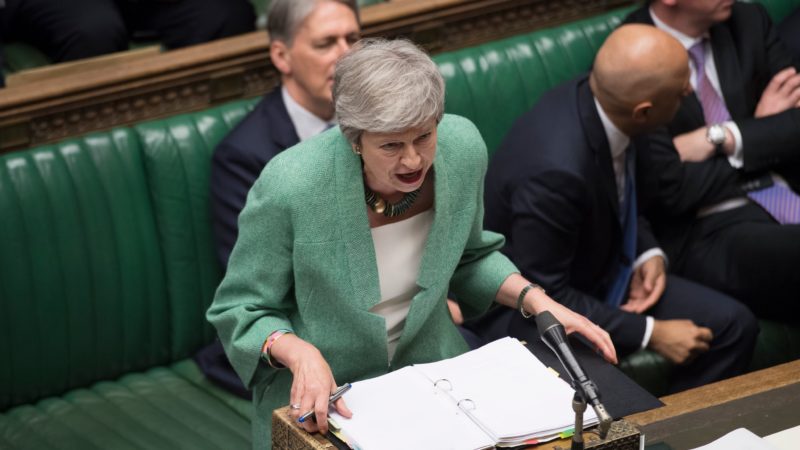
In five years’ time, how will left-wing internationalists judge Theresa May’s premiership? The outgoing Prime Minister’s record is woeful by any normal yardstick – but what comes next could prove to be so much worse. The awkward stasis of the last three years may soon be remembered almost fondly, as the calm before the storm.
May came to office declaring she wanted to fight injustices but she is leaving with nothing to show for it, after Brexit consumed everything. To govern is to choose and she chose not to act on Britain’s searing inequality and fraying public realm. Only in the dying days of her tenure did she do something truly historic and progressive, by legislating for the UK to target net zero carbon emissions.
On Brexit, May was inept at every level, though she did at least realise that the EU had red lines too and that no deal would endanger the union and British business. The Tories are unlearning those lessons. For a few more weeks, the Conservative Party will play out its midsummer’s dream, content to weave a fantasy of EU surrender or cost-free no-deal Brexit. After that, once Boris Johnson is presumably installed as prime minister, the moment of reckoning will come.
As a serial liar, Johnson may end up betraying his hard Brexiteer cheerleaders. Perhaps he will U-turn, follow May and submit to the EU’s terms – or just kick the can down the road once more. But Johnson is boxed in and there is every chance he will try to see through his extraordinary Halloween pledge to lead the UK over the cliff. It seems that a pure Brexit is all that matters, even if the price is a savage recession and the possible break-up of Britain. The Conservatives are no longer the party of business or the union but of English nationalism, isolationism and sovereignty without power.
Whichever path the new Prime Minister pursues, it is very hard to see how he will be able to secure a majority in parliament. The House of Commons is deadlocked and is only able to say ‘no’, not ‘yes’. That must mean the chances of a general election are rising, even though neither of the main parties really wants one. There may be no other path forward.
For the left, an election could be a moment of great opportunity or grave danger. The Labour Party only needs to gain a few seats to form a minority government. But in a divisive ‘Remain’ versus ‘Leave’ contest, an extreme Johnson-led alliance of Conservatives, Brexit Party and DUP could prosper too. Theresa May’s failure to broker compromise has taken us to this point. Many on the left are delighted that the polarisation of Brexit politics has pushed Labour grudgingly into a pro-Remain position. But it has opened up the prospect of an electoral victory for hard Brexit too.
When it comes to avoiding no deal, all that matters is that Labour and the smaller pro-Remain parties can muster a majority between them. From that narrow perspective, many on the left will hope to see Lib Dems or even nationalists prosper in places where they are the main challenge to the Tories. But in red-blue seats, there will be highly uncertain three- or four-way races. In different contests, the rise of the Lib Dems and the Brexit Party could end up handing victory to either Labour or the Conservatives, with small shifts in sentiment possibly having an outsized impact.
To have a chance of governing, Labour will have to hold together a fragmenting coalition of voters who have divergent views on Brexit, the Corbyn project and the party’s readiness for office. But what happens next will depend as much on the Conservatives as Labour, and on what the public makes of their controversial choice for Prime Minister. Politics has never been more polarised or unpredictable. But if Johnson fights and wins a hard Brexit election, we will all end up wishing for a return to the sorry days of Theresa May.




More from LabourList
‘Labour’s quiet quest for democratic renewal’
‘Labour promised to make work pay. Now it must deliver for young people’
‘Council Tax shouldn’t punish those who have the least or those we owe the most’